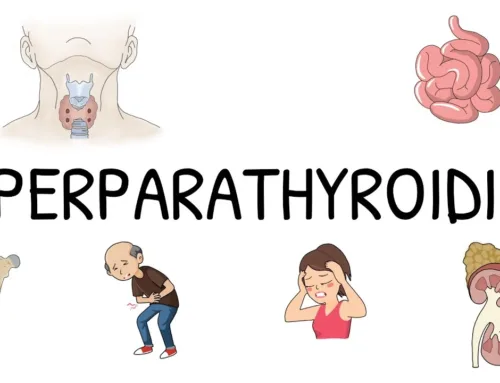Hashimoto’s thyroiditis is a medical condition that affects the thyroid gland, resulting in the immune system attacking the thyroid, causing it to become inflamed and damaged. The condition is relatively common, affecting around 5% of the population. If you have been diagnosed with Hashimoto’s thyroiditis, explaining the condition to your friends and family can be challenging, as it is a complex autoimmune disease. However, it is possible to help them understand with the right information and approach. In this blog, we will explain Hashimoto’s thyroiditis and provide you with some useful tips to help you explain it to your loved ones.
What is Hashimoto’s thyroiditis?

Hashimoto’s thyroiditis is an autoimmune disease affecting the thyroid gland, a butterfly-shaped gland found in the neck. The thyroid gland produces hormones regulating metabolism, heart rate, body temperature, and other bodily functions. Over time, the thyroid gland may become unable to produce enough hormones, leading to an underactive thyroid, also known as hypothyroidism. When you have Hashimoto’s thyroiditis, your immune system incorrectly attacks the thyroid gland, causing inflammation and damage.
What are the symptoms of Hashimoto’s thyroiditis?
The symptoms of Hashimoto’s thyroiditis can vary from person to person and may include the following:
- Fatigue
- Weight gain
- Sensitivity to cold
- Hair loss
- Dry skin
- Constipation
- Joint pain and stiffness
- Depression
- Memory problems
These signs can be mild or severe, depending on the degree of damage to the thyroid gland.
How is Hashimoto’s thyroiditis diagnosed?
If you have Hashimoto’s thyroiditis, you may have elevated levels of thyroid antibodies, indicating that your immune system is attacking your thyroid gland. A blood test measuring thyroid hormone levels and antibodies diagnose Hashimoto’s thyroiditis. Your doctor may also perform a physical examination to check for swelling or lumps in your neck.
How is Hashimoto’s thyroiditis treated?
Treating Hashimoto’s thyroiditis involves managing the symptoms and addressing underlying thyroid dysfunction. If you have an underactive thyroid, you may require to take thyroid hormone replacement therapy to restore your thyroid hormone levels. You may also need to make lifestyle changes, such as eating a nutritious diet, exercising regularly, and managing stress.
How can I explain Hashimoto’s thyroiditis to my friends and family?
Explaining Hashimoto’s thyroiditis to your friends and family can be challenging, but it is important to help them understand your condition. Here are some tips to help you explain Hashimoto’s thyroiditis to your loved ones:
- Start by explaining the basics of the condition, such as what it is and how it affects your thyroid gland.
- Use analogies or visual aids to help them understand. For example, you could compare your thyroid gland to a car engine that needs fuel to function correctly.
- Share your symptoms and how they affect your daily life. This can help your loved ones understand the condition’s impact on your health and well-being.
- Hashimoto’s thyroiditis is an autoimmune disease, which means your immune system attacks your body. This can help dispel any myths or misunderstandings about the condition caused by lifestyle factors or diet.
- Encourage your loved ones to ask questions and learn more about the condition. This can help them to be more supportive and understanding of your needs.
Do you know what are the Signs and Symptoms of Adrenal Cancers and Adrenal Tumors?
Conclusion
In conclusion, Hashimoto’s thyroiditis is a complex autoimmune disease that can be challenging to explain to friends and family. However, with the right information and approach, it is possible to help your loved ones understand your condition and be supportive of your needs. Remember to be patient.




Leave A Comment